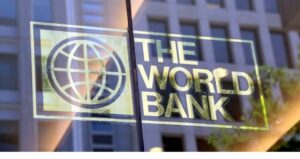Data from the World Bank says Foreign Direct Investment (FDI) to Nigeria has nosedived by a staggering 58.98 per cent in 11 years.
In its International Debt Report (IDR), the Washington-based lender said in its annual report that Nigeria’s FDI fell from $5.966bn in 2010 to $2.447bn in 2021, with much of it believed to have happened in the last few years.
In its updated statistics for 2022, the World Bank stated that FDI in the country dipped to $851 million in 2019, the lowest within the period under review.

Within the same period, the bank said Nigeria spent $9.6 billion to service foreign debts.
However, despite the coronavirus pandemic that disrupted businesses across the world, Nigeria’s FDI rose to $930 million in 2020.
But, painfully, Nigeria’s debt rose to above N44 trillion, with fears it may reach the N50 trillion mark before a new administration takes over next May.
Experts have blamed the downward trend in FDIs on insecurity, as well as the poor economic policy framework of the Federal Government which discourages investors.
The country’s public debt reached N44.6 trillion in the third quarter of this year (Q3 in 2022), representing a 2.9 per cent quarter-on-quarter decline when compared to N42.84 trillion recorded in Q2 in 2022.
The Debt Management Office, DMO, in a statement a few days ago, noted that the increase in public debt was due to new borrowings by the Federal Government to part-finance the deficit in the 2022 Appropriation Act, as well as new borrowings by sub-nationals.
According to DMO, the total public debt stock comprises domestic debt of N26.92 trillion and external debt of N17.5 trillion.
Said the office: “Total public debt stock which comprises the total domestic and external debt stock of the federal government of Nigeria (FGN), all State Governments and the Federal Capital Territory (FCT) stood at N44.06 trillion.
“In comparison, the total public debt figure as of June 30, 2022, was N42.84 trillion. The total domestic stock as of September 30, 2022, was N26.92 trillion while the total external debt stock as of September 30, 2022, was N17.15 trillion.
“The increase in the Debt Stock was largely due to New Borrowings by the Federal Government to part-finance the deficit in the 2022 Appropriation Act, as well as, New Borrowings by sub-nationals.”
Data from the DMO’s external and domestic debt service also showed that the country spent N1.17 trillion on debt in Q3’22.
This comprises N820.59 billion for domestic debt service and N356.92 billion ($801.23 million) for external debt service.

